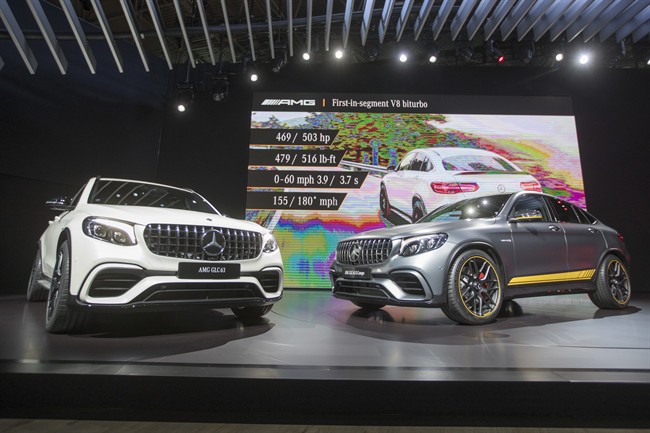It’s finally spring — the time when birds start chirping, ice melts off streets, and many Canadians begin to feel the irresistible urge to get a new car.

So here’s the eternal question: Does it make sense to lease your vehicle instead of buying it?
From a financial point of view, there’s a quick and easy answer: Buy.
WATCH: New cars: buy or lease?

The best approach from a financial perspective is to purchase a slightly used vehicle, said Jason Heath, a certified financial planner and managing director at Objective Financial Partners.
“The sweet spot is a car that’s one to two years old,” he added.
That’s because cars depreciate quickly in their first few years off the lot, but the depreciation curve tends to flatten out after that.
WATCH: Five tips you need to know when buying a used car

Buy a relatively new used car and you can save a bundle compared to purchasing a new model of the same make and also sell the car for close to what you paid for it a few years later, should you wish to, according to blogger and car enthusiast Freddy “Tavarish” Hernandez.

Get weekly money news
But what if you really like new cars?
Buying is still the better way to go in most cases, according to Heath.
WATCH: How to save money when buying a car
Still, as far as financial sins go, leasing instead of buying your vehicle generally falls in the category of small indulgences for Heath. It’s in there with things like having a steak dinner: There are cheaper, financially wiser options, but it’s unlikely you’ll go bankrupt for it. Plus, sometimes you gotta live.
So how do you weigh the lifestyle pros against the financial cons of leasing?
READ MORE: Why this is going to be the most expensive year for gasoline since 2014
There are three sets of numbers you should consider carefully before you put your John Hancock on a car lease:
The equity you give up by opting for lower lease payments
Besides the fact that you can get a brand new ride every few years, what makes leasing so attractive is that your monthly payments are usually much lower than if you were buying the same vehicle.
That’s because when you lease you’re only paying for the amount that the car will depreciate for the duration of the term of the lease.
Say, for example, that you’re leasing a $30,000 car for three years. Assuming the vehicle’s residual value at the end of the term is $17,000 and your interest rate is 1.9 per cent with no down payment, you’re looking at about $450 in monthly payments. If you were to buy that car and pay it off in three years with zero per cent financing, you’d be looking at a whopping $940 per month in Ontario (including HST), according to the vehicle calculator provided by the Office of Consumer Affairs.
At the end of the lease, though, you’re left with nothing. If you had bought the car, you’d have a vehicle you could sell for $17,000 or keep driving for, say, another seven years at least, with little more than maintenance costs to worry about.
READ MORE: Considering a long-term car loan? Think twice, say experts
Your yearly mileage
There’s another set of calculations you should do before opting for a lease, said Heath: Figure out how many kilometres you’re likely to drive in a year.
The lease rate you’ll be quoted is generally based on a fairly low mileage and going over it will cost you, noted Heath.
Twenty-five thousand kilometres per year is a common limit in Canada. But Heath said he easily drives over 30,000 kilometres a year, even though he often works from home.
Even a short commute could push you above your mileage cap.
You should also be careful about getting dinged for little repairs at the end of the lease, said Heath.
“Car companies are usually pretty particular about these things,” he noted.
READ MORE: Digital odometer tampering ‘being done more often than not’: expert
Your tax deductions (if you’re self-employed)
One common misunderstanding is that leasing is a better deal than buying, if you’re self-employed and can claim vehicle expenses on your tax return, noted Heath.
Leasing could yield better tax deductions than owning, but only if your vehicle is rather expensive — say more than $40,000 — cautioned Heath.
“There are maximum amounts you can depreciate on the purchase of a car and the amounts that you can deduct if it is leased is often more favourable with a more expensive car,” said Heath.
For those with average budgets, though, “it probably won’t make a huge difference whether you buy or lease,” he added.
READ MORE: Self-employed? Here are 6 steps to get your taxes right








Comments